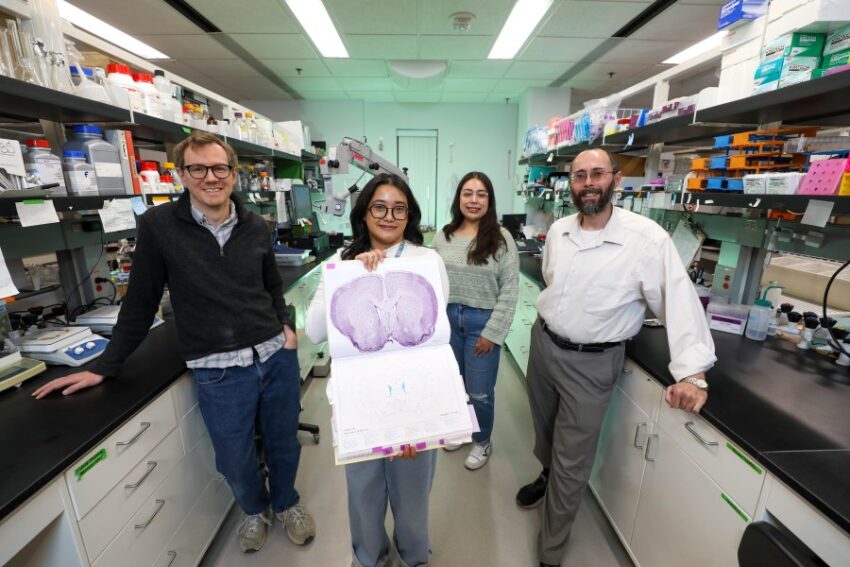EL PASO, Texas (KTSM) – The National Institutes of Health (NIH) awarded a $2.8 million grant to the University of Texas at El Paso (UTEP) researchers to explore the neurobiological mechanisms behind drug-taking behaviors and addiction, the university announced in a news release.
UTEP said the study will focus on striosomes, clusters of cells within the brain that play a pivotal role in decision-making.
The study will also seek to address a critical issue: understanding how drugs of abuse impact decision-making processes and how these changes can drive costly and self-destructive behaviors, UTEP said.
“Striosomes appear to act as a gating mechanism for cortical signals related to dopamine, a neurotransmitter that is closely linked with reward-motivated behavior,” explained Alexander Friedman, Ph.D., the grant’s principal investigator and assistant professor in UTEP’s Department of Biological Sciences. “In individuals with substance use disorders, we believe this gating function is disrupted, which may explain why they continue pursuing drugs despite high costs.”
Substance use disorders remain a pressing public health crisis in the U.S., with overdoses continuing to rank among the leading causes of death among adults, according to the Centers for Disease Control and Prevention (CDC).
UTEP said a hallmark of these disorders is the persistent pursuit of drugs, regardless of the often significant personal, financial, and social costs involved.
While existing computational models have provided valuable insights into drug consumption and craving, they have largely ignored the role of cost in decision-making — an omission this project aims to rectify, Friedman said.
UTEP said the study combines experimental work using animal models with the development of an advanced computational neurobiological model.
Such models allow researchers to simulate and test hypotheses about how neurological processes influence behavior, offering tools to better understand the intricate relationship between drug use, decision-making, and neural activity, UTEP said.
“This study is a synthesis of behavioral neuroscience and computational biology. We’re not only exploring how drugs affect brain activity but also how this activity translates into real-world behaviors. It’s a critical step toward bridging basic science and practical applications,” Travis Moschak, Ph.D., assistant professor and co-principal investigator, said.
UTEP said the project will involve extensive collaboration and student engagement: Friedman leads one of the largest research teams at UTEP, including 10 graduate students. Moschak’s lab will contribute an additional three graduate students, all of whom will be funded through the NIH grant.
“This grant represents an incredible opportunity for our students to contribute to groundbreaking research while gaining hands-on experience in the lab,” Friedman said. “Many of them are already deeply involved in the experimental and computational aspects of this study, and their contributions are invaluable.”
“We are incredibly proud of Dr. Friedman, Dr. Moschak, and their teams for securing this prestigious grant,” Robert A. Kirken, Ph.D., dean of UTEP’s College of Science, said. “Their work exemplifies the impactful research happening at UTEP, and it aligns perfectly with our mission of serving the community. This study has the potential to transform lives, and we are deeply grateful for their efforts.”
 Read: Read More
Read: Read More




